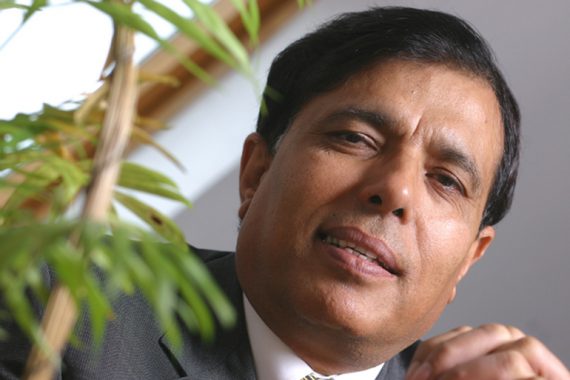Hunt must listen to King’s Fund claims of ‘invisible’ GP crisis

I must congratulate the King’s Fund for a very comprehensive report on the pressures on general practice. It rightly concludes, that despite GPs being at the heart of the health care system, a lack of nationally available, real-time data has made their changing workload largely invisible to commissioners and policymakers.
There is no doubt that the current service is teetering on the edge of collapse
The BMA and Pulse have been highlighting the issues raised by the King’s Fund for several years without much success. I hope an objective assessment by a non-partisan body like the King’s Fund will ring alarm bells in the Department of Health.
General practice in England is indeed under intense pressure at present from a variety of sources, including the plan to keep surgeries open from 8am to 8pm, seven days a week. These are combining to overstretch practices in an unsustainable manner. A key factor is that patient demand is constantly increasing because of an unhealthy ageing population. By 2011, the number of people aged over 65 had surpassed 10 million. By 2031, it is predicted to hit a new peak of more than 15 million. As many of these patients enter their 70s and 80s, they will develop increasingly complex health needs that require longer consultations and more intense, complicated care from their general practice.
The issue for general practice is that it is not only the first port of call for these patients, but increasingly the deliverer of long-term care in the community. This appears to be the Government’s preferred direction of travel as it publicly states that care needs to be shifted from hospitals into the community. This has implications not just for the treatment of older patients, but also for the wider population which continues to grow.
But while GPs are working harder than ever before, they are being hamstrung by declining resources that are undermining their ability to overcome the obstacles they face. It is self-evident that the inflation-linked rises to NHS funding are not keeping pace with the avalanche of work facing general practices.
Even more worryingly, GP income streams have declined by 11%, while there has been a 2.3% rise in the cost of running a practice, including the amount spent on keeping GP practice buildings in good shape, energy bills for GP practices, and the amount spent on GP staff, including practice nurses and receptionists. The cost of running a practice now accounts for 61.6% of GP budgets – a huge amount.
The practical reality of these factors is that GPs simply do not have the resources to spend on the services needed by their patients. This includes the recruitment of extra GPs and practice staff, such as nurses. This stark reality sits at odds with the Government’s constant pronouncements on shifting yet more work and services into general practice. In this environment, many GPs are buckling under the pressure and stopping or reducing their work owing to stress — a situation which is not only deeply upsetting for the individuals involved, but is further diminishing the capacity of GP services. We are facing a workforce cliff edge, with 54% of GPs over the age of 50 intending to quit direct patient care within five years. The picture across England is that of a system on the brink.
Last month, general practice finally got an announcement from NHS chief executive Simon Stevens that on the surface offers a solution to the incredible strain that has been undermining patient care and GP morale, for the best part of a decade. It promises to increase funding for general practice that would bring it back to roughly the 11% level that it had sat at for much of the last decade. This will see the proportion spent on general practice funding rise from £9.6bn a year in 2015/16 to more than £12bn a year by 2020/21. In addition, plans are laid out for an expanded workforce, a tackling of the avalanche of paperwork and a rescue package for practices facing collapse. Bringing together many themes, with a genuine effort to help general practice, makes for a credible vision. I hope, it is not, too little, too late.
There is no doubt that the current service is teetering on the edge of collapse. The NHS in general and primary care in particular remains grossly underfunded and this extra investment must be used to meet the core needs of patients, so that GPs have more than 10 minutes to spend with an increasing ageing population with multiple and complex health problems. It must not be thwarted by unrealistic and unaffordable political pledges like a supermarket-style seven day round the clock opening but instead ensure that patients have access to urgent GP services any time of the day and throughout the week. To avoid total collapse of the ,’Crown in the NHS, general practice’, It is high time the health secretary stopped squabbling with doctors and began to listening to them and act on the advice of independent bodies, like the King’s Fund.
Dr Kailash Chand OBE is the deputy chair of the BMA, and a retired GP
Pulse October survey
Take our July 2025 survey to potentially win £1.000 worth of tokens













